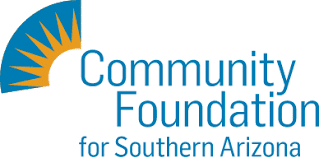Legacy Giving
Planned giving, also known as gift planning or legacy giving, involves a donor’s commitment to contribute a significant gift to an organization beyond their lifetime. This type of giving often builds upon the regular donations made by an individual or couple during their lives but on a much larger scale.
Unlike annual gifts, planned gifts are scheduled for the future and are typically part of a donor’s financial or estate plans. These gifts are usually made through a will or trust and are realized after the donor passes away. Coordinating planned gifts often involves professional advisors, attorneys, and nonprofit organizations.
It’s important to understand that planned giving is not constrained by your current wealth.
Planned gifts are generally larger than lifetime donations because they can include a variety of traditional and non-traditional assets that might not be eligible for gifting during one’s lifetime. These assets can include life insurance policies, retirement assets, equity, or real estate holdings, rather than just standard income.
Even if you have been making small contributions to an organization over the years, your planned gift can have a significantly greater value and impact.
To learn more about planned or legacy giving, we recommend you contact your trusted financial advisor, or the Community Foundation of Southern Arizona (more at the bottom of the page).
Why Make a Planned Gift: Benefits of Planned Giving

Why is planned giving important?
“Not only does planned giving represent the opportunity to provide long-term support to an organization, but it also gives donors a chance to establish a legacy,” explained an article in Trust & Will.
Other benefits include:
- Planned giving provides an opportunity to leave a major gift that may not have been possible in a donor’s lifetime due to financial commitments.
- Charitable gifts are often exempt from estate tax, allowing more of the gift to go directly to the organization.
- Donors can avoid capital gains taxes when they transfer assets as part of a planned gift, maximizing the charitable contribution.
Perhaps the biggest benefit is that planned giving preserves a donor’s legacy.
Typically, a donor begins thinking about planned giving as they near retirement age but could start the process as early as their 40s. Since a planned gift usually aligns with a donor’s values and beliefs, the gift can be a personal one that represents a cause or nonprofit close to their heart, thus solidifying an impactful and lasting legacy for the donor.
Legacy Giving vs. Planned Giving
Planned giving is often referred to as legacy giving. The terms are generally interchangeable.
Planned gifts – or legacy gifts – can be used to support nonprofit organizations or establish legacy funds at community foundations. Legacy funds often fall into one of four categories:
- Advised Fund: Grants from a donor-advised fund are recommended by a fund advisor of your choosing. This type of fund is best when you want to designate a specific person to make grants from the fund on your behalf, typically a child or other close relative, after your lifetime.
- Broad-Purpose Fund: Broad-purpose funds support a chosen cause – for instance, protecting the environment. This type of fund is best if you are passionate about specific impact areas but you do not want to choose specific organizations to support.
- Designated Fund: Designated funds support specific organizations that you choose during your lifetime. This type of fund is best when you know the exact organization(s) you want to support, each of which receives a set percentage adding up to 100% of your total gift.
- Scholarship Fund: Scholarship funds support students’ academic pursuits and are tailored to match your interests. You set scholarship award criteria. Community foundation staff and volunteers review applications and award scholarship recipients on your behalf.
Opening an endowment, or permanent legacy fund, with a planned gift is a flexible, efficient, tax-effective way to ensure the causes you care about will benefit from your generosity forever.
Legacy gifts are usually given upon a donor’s death – but not always.
According to an article by Nonprofit Hub, legacy giving can take several forms, “including recurring donations that begin while the donor is alive and continue after they’re deceased. And legacy gifts don’t have to be monetary, either. They can include material goods, property, stocks—anything that’s of value to the beneficiary.”

Planned Giving with CFSA
The Community Foundation for Southern Arizona has been a trusted philanthropic partner to hundreds of individuals, families, businesses, and nonprofits since 1980, and is committed to working with people to reach their charitable giving goals.
Whatever the objectives, the Community Foundation can help you develop a plan to accomplish your philanthropic goals.
By giving through the Community Foundation, individuals have made a lasting impact in Southern Arizona by awarding over $245 million in grants and scholarships to local nonprofits and educational institutions addressing issues including animal welfare, the arts, education, health and human services, economic development, and the environment.
If you would like to learn more, please contact their Philanthropy Team at giving@cfsaz.org or call 520-289-8003.
